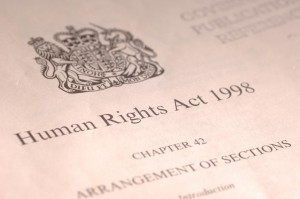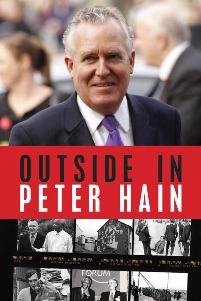“Northern Ireland Assembly Votes to Legalise Same Sex Marriage” proclaimed the headline in The Guardian. Few headlines have promised so much more than the subsequent story delivers. For in spite of the one-vote majority in favour of a change in the law in Northern Ireland in the Assembly on Monday, the DUP’s invocation of a “petition of concern” (POC) on the issue meant that it was able to veto the introduction of same-sex marriage in Northern Ireland. As Gerry Lynch put it, ‘it still felt like a punch in the plexus to finally secure a democratic majority through years of hard work only for it to be vetoed undemocratically’. With rich irony the Northern Ireland Act provisions designed to protect minority groups against predatory applications of majority power have been turned into a means of stymieing reform aimed at delivering marriage equality.
It wasn’t supposed to be like this. With the spectre of the Northern Ireland Parliament’s permanent Unionist majority dominating the drafting of the arrangements for the Northern Ireland Assembly at the time of the Good Friday Agreement, POCs were intended to maintain consociationalism within Stormont by requiring a super-majority and cross-community support where Northern Ireland’s Unionist or Nationalist parties considered that a measure threatened the interests of their community. The ability of POCs to block any legislative change has instead seen them increasingly applied as a strong-arm tactic to prevent changes to the law with the aim of preserving the status quo or extracting concessions in return for a POC being lifted. DUP measures, indeed, appear to be block signed by party MLAs with the issue to which they are to be applied being added to the form at a later stage. Public confidence in the Stormont Assembly’s ability to address the needs of society in Northern Ireland has plummeted.
Whilst the DUP’s stance on gay marriage might be out of step with opinion polling across Northern Ireland, it remains popular with its own core supporters and so the political incentive to wield a POC (ahead of next year’s Assembly elections) remains strong. But if the democratic institutions in Northern Ireland remain so dysfunctional, will the courts intervene to permit gay marriage? Legal challenges to the limitations are already underway in the Northern Ireland High Court. The UUP leader Mike Nesbitt, whilst describing opposition to gay marriage as being on the “wrong side of history” (whilst maintaining his own vote against change), has told his party conference that he expects the new law to be forced upon law makers through the courts.
Forcing law reform through judicial decision could unblock this particular impasse. The need to react to an adverse court decision might help the Unionist parties to soothe the evangelical elements amongst their support base, being “saleable” as a long-resisted reform that was forced upon the parties. All the better if the judgment is not issued until after the Assembly elections. And for people who want to get married, a win is a win, and they are not likely to sniff at the courts forcing the pace of change.
So should the courts intervene? Under section 6 of the Northern Ireland Act the legislation of the Northern Ireland Assembly is not valid law if it is outside the legislative competence of the Assembly (a concept which includes making a law which breaches ECHR rights). But as the Northern Ireland Assembly has not made a law banning Gay Marriage, just failed to enact one allowing it, the general provisions of the Human Rights Act (and its incorporation of the ECHR into UK Law) will apply.
Whilst the ECHR includes a right to marry (Article 12) the Strasbourg Court has to date refused to rule that it is discriminatory for states not to apply this right to homosexual couples. In July, in its latest judgment on the issue,Oliari v Italy, the Court maintained that as only 11 of the 47 states signatory to the Convention had to date accepted same-sex marriage, there was no European consensus in favour of reading such a right into the terms of the ECHR. Many Unionist politicians picked up on this point in Monday’s debate:
The European Court of Human Rights has ruled that same-sex marriage is not a human right, so this is not a rights issue. (Gordon Lyons, DUP)
There is no human right recognised by the European Convention on Human Rights or the European Court of Human Rights to same-sex marriage. It therefore cannot be and is not a rights issue, nor is it an issue of equality. Rather, there is a worked-up, phoney demand for rights where none does or should exist. There is no equality issue here. (Jim Allister, TUV)
These same politicians will eagerly and angrily decry any effort by the Northern Ireland courts to change the law on human rights grounds. But Article 12 is not the only applicable ECHR right. The Court has established that the relationship of a cohabitating same-sex couple living in a stable partnership falls within Article 8 ECHR’s protection of “family life” (Schalk and Kopf v Austria), this might provide a basis for arguing that, as same-sex marriages concluded in other parts of the UK are treated as Civil Partnerships within the Northern Ireland jurisdiction, the awkward legal transformation of a marriage into a civil partnership as soon as someone steps off a ferry or plane amounts to discrimination.
Moreover, the definition of marriage in Northern Ireland law – “the voluntary union for life of one man and one woman to the exclusion of all others” – rests on a nineteenth century judicial decision, Hyde v Hyde (backed up by secondary legislation – the Matrimonial Causes NI Order 1978). By altering this definition the courts cannot be accused of tossing aside legislation enacted by elected lawmakers, a fact which might embolden any judge concerned about the political backlash resultant from such a decision. They also have a much freer hand in terms of their powers under the Human Rights Act than they would have had if the definition of marriage was contained in primary legislation, if they can be persuaded to move ahead of Strasbourg on the issue of Article 12.
This room for manoeuvre makes the gay marriage cases crucial tests for the role of the courts in Northern Ireland’s system of government. On a range of issues from gay marriage, to the ban on gay blood donations to the strict limitations on abortion, judges in Northern Ireland are increasingly being confronted with cases which highlight the blockages in the Assembly’s law-making process. Some might decide that the time has come to chivvy the Assembly along.
Colin Murray.



